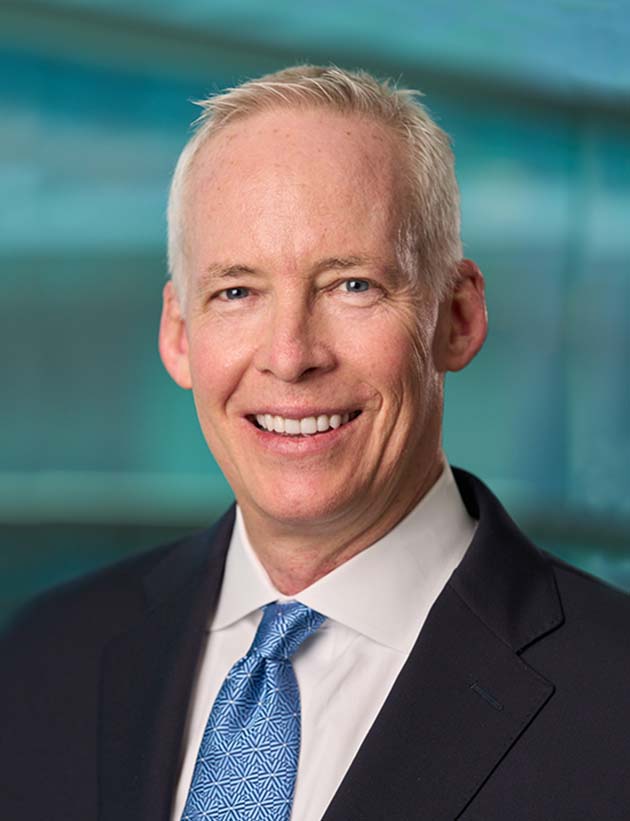A year after unveiling its “Fit for Growth” restructuring effort, Biogen is on track to reverse multiple years of declining revenues, CEO Chris Viehbacher told reporters Thursday.
The Cambridge, MA-based biotech reported its second-quarter financials, bringing in $2.5 billion in quarterly revenue. Viehbacher said that Biogen is “well on track” to realizing $1 billion in savings by the end of 2025 through its cost cuts.
But its Eisai-partnered Alzheimer’s drug Leqembi brought in just $40 million, up from $19 million in the first quarter. The drug has been on the market for nearly a year and a half, and while Eisai has predicted sales could grow to 1.3 trillion yen ($8.6 billion) by 2032, it has yet to take off with doctors and patients.
And Biogen still faces an uphill battle convincing investors to share Viehbacher’s optimism. Its stock is down 20% year-to-date, and shares barely moved before markets opened Thursday. Biogen still expects 2024 revenues to decrease by the low-single digits compared with 2023.
Here are other takeaways from Biogen’s results for the second quarter:
For Biogen’s turnaround to work, Alzheimer’s sales need to grow: Leqembi’s sales growth was “a pretty significant move,” Viehbacher said. “We’re pretty convinced that Leqembi is on the right path now.” Leqembi will play a central role in Viehbacher’s turnaround hopes, although the drug’s $40 million in quarterly sales don’t yet count for much.
And the CEO said he was “quite surprised and rather perplexed” by the European Medicines Agency’s decision to not recommend Leqembi for approval in Europe. Biogen and Eisai said they will seek re-examination of that rejection.
Viehbacher also highlighted recent long-term follow-up data that he said show patients doing better on treatment over time. Independent experts, however, raised questions over those study results, such as having roughly one-third of patients drop out of the study, and the difficulty of interpreting the results without a placebo control group.
Speedier path to tau data: Biogen now expects Phase 2 results for what could be another key Alzheimer’s drug by the end of 2026, Viehbacher said.
That drug candidate, an antisense oligonucleotide called BIIB080, targets tau, a protein that can tangle and clump inside neurons and hinder the brain’s ability to function. Biogen said Thursday it has cut target enrollment by about 50% in an ongoing Phase 2 study called CELIA. Viehbacher said if the results are positive, the company could enter Phase 3 “quite quickly.”
Biogen also discontinued a preclinical program with Denali Therapeutics that aimed to use the small biotech’s delivery technology to cross the blood-brain barrier and target amyloid beta.
Keeping its biosimilar business: Over a year ago, Biogen kicked off a strategic review for its biosimilar business. Even though Viehbacher has called it “not necessarily core” to the company earlier, Biogen will keep the unit, which generates about $800 million in yearly revenue.
“We did talk to a number of parties, and we did enter into some discussions,” Viehbacher said. “But we just felt that the value to shareholders was greater if we actually kept it, given the offers we were getting.”
One of the issues of the review was the number of companies in biosimilars, Viehbacher added, saying there were a limited number that could “really bid on this because of the concerns around antitrust.”
Biogen will provide an update next quarter on how it plans to improve profitability and efficiency in the business.
On future M&A: Viehbacher, formerly the CEO of Sanofi, has lived up to his dealmaker reputation since joining Biogen in November 2022. The company struck a $7.3 billion agreement to acquire Reata Pharmaceuticals last year, and recently closed its acquisition of HI-Bio, paying $1.15 billion upfront.
 Michael McDonnell
Michael McDonnellDespite taking on debt to acquire Reata, CFO Michael McDonnell described the company’s balance sheet as “really strong.” Biogen ended June with $1.9 billion in cash and marketable securities, while holding $6.3 billion in debt. That doesn’t factor in the HI-Bio acquisition, which closed in July.
In considering ability for further dealmaking, McDonnell said Biogen generates about $2 billion in free cash flow per year.
“We could very comfortably add some incremental leverage for something that we really like,” McDonnell said. “So, it’s probably in the zip code of around $8 billion to $10 billion all in that we could deploy in the next couple of years for something that we found attractive.”
Viehbacher said the focus would be to add to Biogen’s mid- to late-stage pipeline. “We are always looking, but it has to be for the right opportunity,” he said.